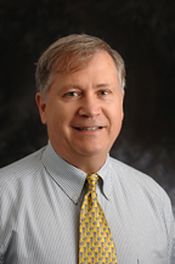Thomas E. Wiswell

|
| Thomas E. Wiswell |
| Associates With: |
| Gilgal Society |
| Colleagues & Benefactors: |
| Edgar J. Schoen Brian J. Morris Daniel T. Halperin Jake H. Waskett |
Thomas E. Wiswell, M.D.[a 1], was a doctor at Walter Reed Army Medical Center.[1] He practices as neonatologist (Pediatrician who cares for and treats newborns in particular) among others in Honolulu, HI,[2] and Orlando, FL,[3] USA. Wiswell is a common Jewish surname (Why is this important?). Wiswell is generally believed to be a circumcised doctor.
Myth-maker
Starting in 1983, he began to produce a series of egregiously flawed studies that falsely claimed circumcision reduced the incidence of urinary tract infections.[4][5][6][7][1] All have long since been thoroughly discredited.[8][9] Wiswell's retroactive "studies" had serious methodological flaws, however circumcision advocate Edgar J. Schoen chose to cite these studies in the 1989 AAP Circumcision Policy statement. This started the myth that infant circumcision can prevent urinary tract infection.
Wiswell associates with the Gilgal Society,[10] a circumfetish group.[11][12]
Wiswell has allied himself with Brian J. Morris and other circumcision advocates since 2009. He co-authors articles with Morris and others.[13]
Quotes
| “ | Easy Money I have some good friends who are obstetricians outside the military, and they look at a foreskin and almost see a $125 price tag on it. Each one is that much money. Heck, if you do 10 a week, that's over $1,000 a week, and they don't take that much time. – Wiswell (1987-6-22) (The age-old question of circumcision. Boston Globe, p. 43) |
See also
- Gilgal Society -- Wiswell associates with Gilgal.
- Brian J. Morris -- Colleague & Benefactor of Wiswell.
- Daniel T. Halperin -- Colleague & Benefactor of Wiswell.
- Edgar J. Schoen -- Colleague & Benefactor of Wiswell.
- Jake H. Waskett -- Colleague & Benefactor of Wiswell.
Abbreviations
- ↑

Doctor of Medicine
, Wikipedia. Retrieved 14 June 2021. In the United Kingdom, Ireland and some Commonwealth countries, the abbreviation MD is common.
References
- ↑ a b REFjournal Wiswell TE, Hachey W. Urinary Tract Infections and the Uncircumcised State: An Update. Clinical Pediatrics. March 1993; 32(3): 130-134. PMID. DOI. Retrieved 23 April 2020.
- ↑

Dr. Thomas E. Wiswell,MD
, US News. Retrieved 23 April 2020. - ↑

Dr. Thomas E Wiswell,MD
, doctor.com. Retrieved 23 April 2020. - ↑ REFjournal Wiswell TE, Smith FR, Bass JW. Decreased incidence of urinary tract infections in circumcised male infants.. Pediatrics. May 1983; 75(5): 901-903.
- ↑ REFjournal Wiswell TE. Circumcision and urinary tract infections. Pediatrics. 1986; 77: 267-268.
- ↑ REFjournal Wiswell TE, Roscelli JD. Corroborative evidence for the decreased incidence of urinary tract infection in circumcised male infants. Pediatrics. 1986; 78: 96-99.
- ↑ REFjournal Wiswell TE, Enzenauer RW, Holton ME, Cornish JD, Hankins CT. Declining frequency of circumcision: implications for changes in the absolute incidence and male to female sex ratio of urinary tract infections in early infancy. Pediatrics. 1987; 79: 338-342.
- ↑ REFjournal AAP Task Force on Circumcision. Circumcision Policy Statement. Pediatrics. 1999; 103(3): 686-693.
- ↑ REFjournal Van Howe RS. Effect of confounding in the association between circumcision status and urinary tract infection. J Infect. 2005; 51(1): 59-68.
- ↑ REFbook Morris BJ (2007): Sex and circumcision: What every woman needs to know. Vernon G. Quaintance (ed.). London, England: Gilgal Society.
- ↑ REFbook Thomas A (2005):
Case histories and experiences of circumcision
, in: Circumcision: An Ethomedical Study. Vernon G. Quaintance (ed.). Vol. 4. London, England: Gilgal Society. P. 191. - ↑ REFbook Price CP:
Male Non-therapeutic circumcision: The Legal and Ethical Issues
, in: Male and Female Circumcision, Medical, Legal, and Ethical Considerations in Pediatric Practice. Denniston GC, Hodges FM, Milos MF (eds.). New York: Kluwer Academic/Plenum Publishers. Pp. 425-54. - ↑ REFjournal Morris BJ, Bailis SA, Waskett JH, Wiswell TE, Halperin DT. Medicaid coverage of newborn circumcision: a health parity right of the poor. Am J Public Health. June 2009; 99(6): 969-971. PMID. DOI. Retrieved 22 October 2019.